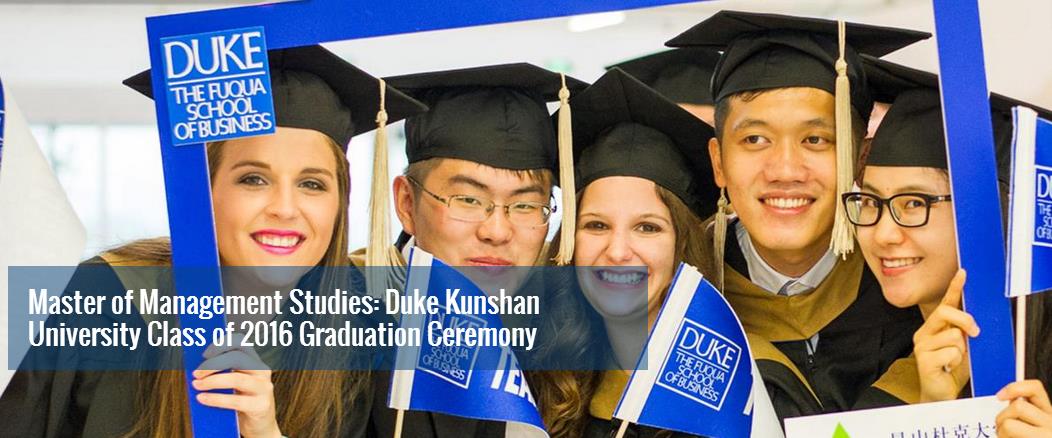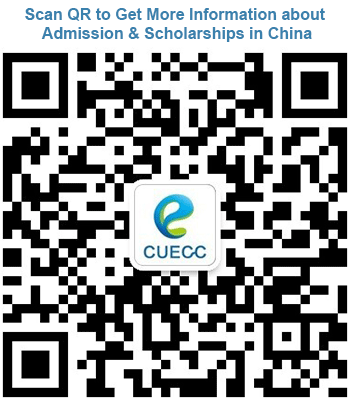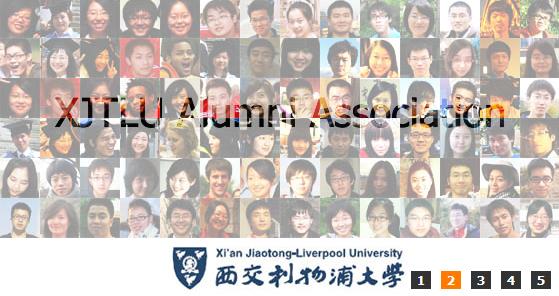more>>See More
American Universities Opening Up Shop in China — Sino-Foreign Joint Education Ventures
By sally on 2016-05-25
Lillian Foote discusses how foreign and domestic universities are linking up in China to create new learning environments.
Click here to get more information about XJTLU
“When China returned to the global stage, it really wanted to appear to be a global power, but it didn’t have enough human resources that could [facilitate] dialogue seamlessly with an international audience,” explained Dr. Heini Shi, director of International Relations at Xi’an Jiaotong-Liverpool University, one of the first Sino-foreign joint-venture universities established in China in 2006. “China’s seeking some universities that can bring in some know-how and intellectual power.”

Along Century Avenue, a major street in the heart of Shanghai’s Lujiazui business district, there stands a sleek fifteen-story glass and concrete building. With its floor-to-ceiling windows and crisp sharp contours the structure blends into a long string of neighboring commercial skyscrapers, sharing the same skyline with landmarks like Jinmao Tower and the Shanghai World Financial Center. But far from being the headquarters of a multinational corporation, this building houses the facilities of NYU Shanghai, a brand new university co-established in 2012 by New York University and East China Normal University.
In the fall of her senior year of high school, San Francisco resident Megan Hou applied early decision to NYU Shanghai, a choice that surprised many of her friends. While most of her classmates were applying to schools close to home in California, Megan was drawn to the university’s yet-to-be defined character. At the time she applied, NYU Shanghai did not have any set campus, alum, or even an established curriculum.
NYU Shanghai is one of several universities recently established in China as a joint higher education institution between an American university and a partner Chinese university. In 2014, Duke University followed NYU’s lead, co-founding Duke Kunshan University with Wuhan University in Kunshan, a city in China’s southeast Jiangsu province.

These schools, formally called Sino-foreign joint-venture universities, are emerging to fill a gap in the global education economy. The number of Chinese students applying to universities in the U.S. has seen a dramatic rise in the last few years, increasing by 75 percent over the last three years to an impressive 275,000. While Chinese demand for international higher education continues to grow, many Chinese students are in search of a less expensive alternative that does not require going abroad to study.
“Most joint-venture campuses are about educating Chinese who can’t afford to go overseas,” explained Deborah Davis, a sociology professor at Yale. Major American research universities like NYU and Duke are accommodating this demand by establishing their own joint-venture universities, providing them direct access to the brightest students in the ever-expanding Chinese education market while strengthening their international presence.
From a geopolitical perspective, China has much to gain by opening its doors to Sino-foreign joint-venture universities. Ever since Reform and Opening Up began in the late 1970s, China has prioritized educational exchange with the West as a way of developing its own industry, science, and technology.

On a Wednesday morning at Duke Kunshan University Chinese student Mike Tang gets up and heads to DKU’s Conference Center for his Social Research Methods seminar, taking a seat by the classroom’s glass-paneled wall where he can get a view of the campus greens. Most of DKU’s undergraduate classes have only 10 to 15 students, creating an intimate learning setting that stands in stark contrast to Mike’s home university, Nanjing Medical University.
Like most Chinese public universities, Nanjing Medical University only offers lecture-style courses due to the overwhelming number of enrolled students. “[At Nanjing Medical University,] the professor can’t directly hear one student’s voice, explained Mike, whereas “at DKU the professor gives every student the chance to give their thoughts, to hear what they are thinking about.”
After heading to lunch in the dining hall, a rectangular room encased in glass where students cluster around small café tables to eat and chit-chat in a mixture of Chinese and English, Mike attends his American History lecture where his professor reviews his assigned readings in painstaking detail. Mike’s last class of the day, Population and Environmental Dynamics Influencing Health, is a discussion-driven seminar that begins with each student giving an individual presentation on an academic article of their choosing.
While a diverse course load similar to Mike’s is offered at many American liberal arts institutions, the multicultural background of DKU’s students weaves a uniquely international perspective into class discussions.
Mike recalls the disparate opinions he and his classmates shared when talking about marriage in his Population Influencing Health seminar. His Indian classmates discussed the troubling social practice of child marriage in their country, something that shocked Mike and his fellow Chinese classmates. In a comparison of Western and Eastern marital practices, Mike noticed that “sometimes Chinese and Indian [students] would share similarities...we talked about the old tradition where the parents of the girl should pay the guy’s parents”, a custom that his American classmates did not support.
Complicating this discussion was the acknowledgment by Chinese students that China’s economic modernization had begun to reshape Chinese social expectations, potentially encouraging urban Chinese to actually adopt a traditionally Western perspective. “In modern cities in China, the guy’s parents or the guy himself should spend a lot of money on a house, on a car...if you don’t have [these things] I don’t think a normal girl would like to marry you”, chuckled Mike.
Could such a classroom discussion, like the one described by Mike, take place within the walls of an American university? Thinking about the discussions I had in my own Global Health class my freshman year at Yale, I remembered how often my classmates and I struggled to understand or accept different cultural practices to which we had no previous exposure.
Mike, however, was constantly coming into contact with a diverse range of cultural backgrounds in his everyday life, whether he was sharing a room with his Indian classmate, attending panels on China-Africa relations with Tanzanian friends, or playing pick-up basketball with some American students.
The benefit of a truly international student body, however, also brings inherent barriers to fostering open discourse among students in class, a communication problem that challenges the academic goals of DKU. Since all of DKU’s classes are taught in English, which the school requires its students to have fluency in, differences in English proficiency levels often creates a skewed class dynamic.
Florence Tesha, a sophomore at Duke from Tanzania who spent a Global Learning Semester at DKU this past fall, recalled how many of her Chinese classmates in her Global Health Ethics class would participate very little in class because of a lack of confidence in their English speaking skills.
While the class eventually settled on a discussion format in which Chinese students had the option of discussing in Chinese and then reporting back to the rest of the class in English, this solution meant international and Chinese classmates did not share their initial thoughts on a topic with each other, taking away an unfiltered aspect from in-class discussions.
Beyond a simple language barrier between students of different English backgrounds, Tesha noticed that cultural miscommunication also had a large influence on how she interacted with her classmates. Drawn to studying in China out of an interest in better understanding Chinese people, who have been migrating in large numbers to Tanzania over the last few decades, Tesha quickly learned that many of her Chinese classmates considered directness when speaking rude. “I felt that most Chinese students, even when they felt something was wrong, or they were offended or maybe disappointed, they didn’t really say it and it made it harder for me to interact from then on because I kept asking, ‘Are you okay? Do you have something to say?’,” Tesha explained.
Tesha also could recall certain casual conversations when students brought up a topic that accidentally illuminated their different cultural prejudices in an uncomfortable way. The most striking example of this occurred one day at lunch in DKU’s dining hall when a Duke international student pulled up an online news story that reported on ivory tusks being smuggled into China from Tanzania, found on Chinese president Xi Jiping’s airplane.
Before Tesha could respond, a Chinese classmate at the table immediately dismissed the story as false, declaring that China would never steal from Africa and was only helping lift up one of its impoverished countries. Angered by this nationalistic point of view, Tesha’s Kenyan classmate retorted that China’s apparent charity for Africa disguised its exploitation of Africa’s resources. “I was trying to act like I was in a neutral position because I had Chinese friends there and they weren’t going to take any of me saying, ‘It’s Chinese people that are responsible’”, explained Tesha.
Contact information:
Sally
Tel:0086-571-88165697
Email:eduunion@cuecc.com
Skpye:studycn001
QQ:2853662503
WeChat:CUECC2003

- Contact Us
-
Tel:
0086-571-88165708
0086-571-88165512E-mail:
admission@cuecc.com
- About Us
- Who We Are What we do Why CUECC How to Apply
- Address
- Study in China TESOL in China
Hangzhou Jiaoyu Science and Technology Co.LTD.
Copyright 2003-2024, All rights reserved





 Chinese
Chinese
 English
English
 Korean
Korean
 Japanese
Japanese
 French
French
 Russian
Russian
 Vietnamese
Vietnamese
